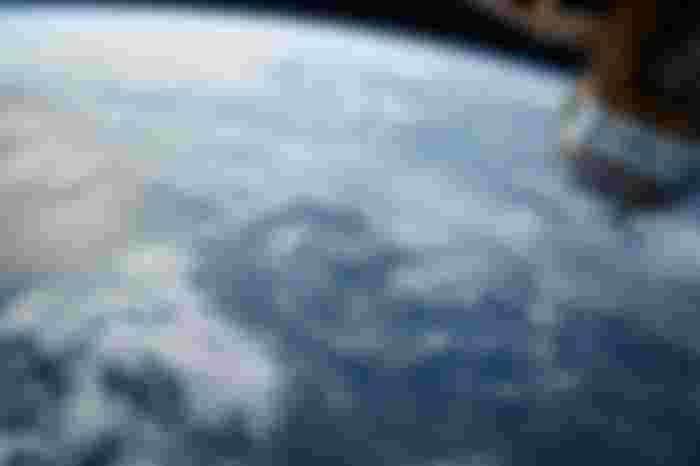“That's one small step for man...one giant leap for man kind".
Those are the exact words of the very first man to step on the moon, Neil Alden Armstrong (5th of August 1930-25th of August 2012). Man has always stared up to the night sky and marvelled at the endless twinkling of stars, over the course of time man has come up with various theories and myths to satisfy their thoughts about ‘space'. Man gained knowledge more and more enough to understand the how, what and if of space exploration. April 12 1961 mankind succeeded to make it's first space exploration. Over the years questions have arisen.
was it necessary? How has it helped mankind? Have we gone too far?
Was it necessary
An eye in space;

Sputnik, the first man-made artificial satellite was launched to space by the then Soviet Union. We got an insight to what it can do and how it will help. Many individuals have viewed space exploration has a major waste of funds that could have been used for major infrastructural and economical development, true but we should not forget what the knowledge of space has done for man.
Weather forecast: the ever watchful satellites in space have made our daily life easier, most times the weather cannot be predicted which is so dangerous for those who work at the mercy of the weather, Fisher men for example are able to determine when and where storms would occur by just reading or listening to the weather forecast of the day. In the past this isn't so, they get caught up by terrible storms leaving them destabilized, also unable to work for a very long time. Tides and waves can also be predicted through the satellites.
Disasters: the satellite studies and predict incoming disasters like a tsunami, an earthquake, an incoming fire and lots more. You still think satellites are useless?
Mapping: satellites take images of specific areas through this, geologist, mappers, and Miners are able to determine the topography of an area and what to expect while working in such an area.
Commutation and defense: your, friends, spouse, parents, siblings, teachers, are at the other side of the globe, you decide to talk with them you pick up your cell and give them a call. Years ago this wouldn't have been possible the only means of communication was through letters passed manually through the sea and roads, many letters would have been lost during delivery process others their content would have been of no use when the letter is finally delivered. Commands and emergency calls would have been totally impossible to deliver over a very far range has radio waves can't transmit over a continent.
Dooms day rocks;

They call it deep space yet it feels shallow. Far away into space, millions of debris have been spotted slowly but steadily making their way into our solar system, they are called asteriods, according to records they have struck earth once, and the results we're catastrophic. It wiped most extinct gigantic and monstrous reptiles that ever walked the earth. Scientist are building weapons to battle this rocks. Fear not this rocks aren't coming anytime soon.
Have we gone too far
The red planet,home?

Mars, Earth's red neighbor, the fourth planet and also the last of the rocky planets. It has always been believed that life could one day strive on mars, space x founder, Elon Reeve Musk speaking on an award show webcast in 2020 talked about the possibility of living on mars.
“if we are lucky, in four years time "
He said.
Does man need a new home? do we need to risk billions of money and lives for the sake of scientific development?
As of 2019 an estimated 34 million humans live in poverty. 34 million out of 7.674 billion others in the world. An estimation of $100 billion to $10 trillion dollars is to be used for the construction of a city on mars for human habitation. I'm not very good with numbers but take this wholesome amount into the world economy and imagine it's usefulness to fight poverty and terrorism, it would surely have a great impact to humans generally, won't it?
According to the United States national oceanic and atmospheric administration an estimate of $122 million to $489 million will be needed to clean the Pacific for a year, $50 trillion to clean the planet by another estimate.
The hotter the better

Lead image source: pixerbay.com
Well living in mars is just a tip of the iceberg, what about living in Venus? Crazy right? Scientist have further made plans of humanity living in one of the hottest planets our solar system has to offer. We will be floating in the atmosphere of second planet in the solar system considered to be the hottest of all nine planets, you think floating cities are fun just wait till you read this. The percentage of oxygen in it's Atmosphere is 96, well no problem right every living thing needs oxygen, but oxygen is the main reason combustion processes are possible the rate at which combustion occurs is cushioned by nitrogen since it is relatively higher on Earth. In Venus there is only 3.5% nitrogen in it's Atmosphere, imagine lighting a cigarette and it suddenly envelopes in flame now that's crazy and dangerous, smoking would have to be banned in the floating City.technical difficulties will probably not occur right, well, let's keep that for later.
Say decades from now humanity successfully evacuate it's home planet to live in another, what will be the cost, how many lives will be lost? Well you could count the loss to be millions.
The question is, clean the planet? Or find a new home?




I can't imagine how it would have been communicating in the ancient days ... Beautiful article